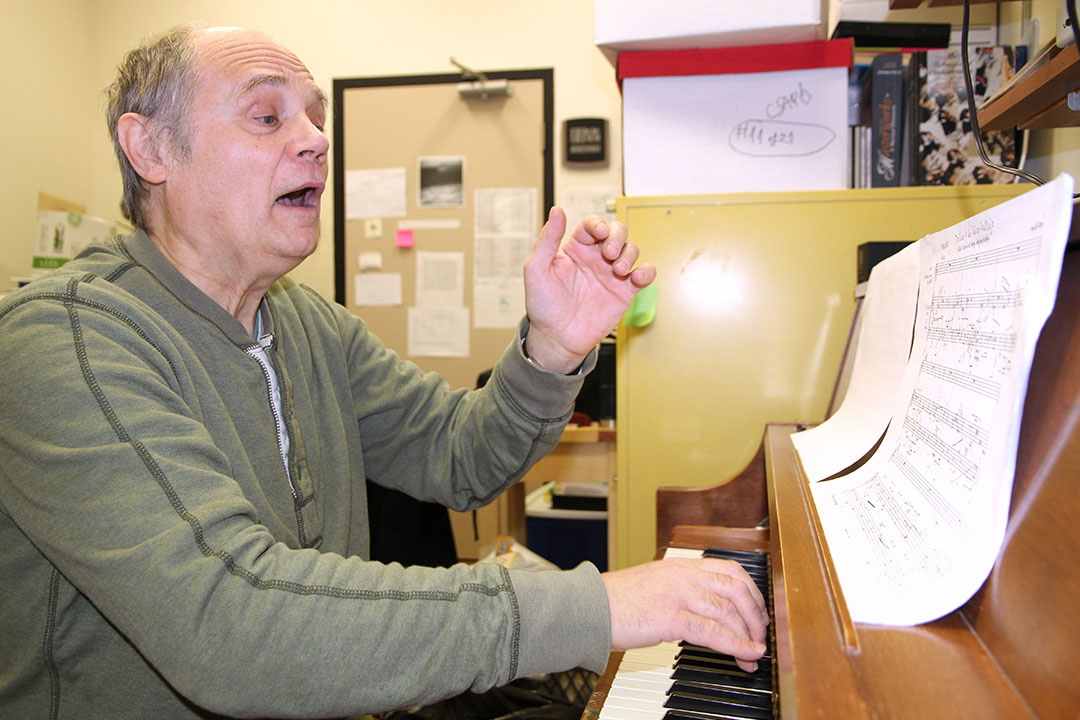
An instrument of change
Gyula Csapó speaks expansively.
By HenryTye GlazebrookSomething as simple as sitting down to discuss the classes Csapó teaches as a renowned professor in the University of Saskatchewan’s Department of Music can quickly blossom into a spectrum of topics as wide ranging as geopolitics, world history and even the beat generation’s influence on culture.
“It’s about geopolitical issues through the lens of music, but also other arts,” Csapó said, referring to his winter semester advanced music course: Music Since 1950 (MUS 457.3). “I try to encourage students to read the poetry of Frank O’Hara or appetize them to Jack Kerouac. It’s all very connected.”
Csapó, who is originally from Hungary but has lived in Canada since accepting a position at the U of S in 1994, is himself an internationally recognized composer and educator.
Although his Music Since 1950 class primarily focuses on the theoretical writings of other leading composers working in its titular timeframe, Csapó heralds his class as an opportunity for students to explore the competing ideas of history viewed through the context of music.
“We just concluded the other day that music from 1968, in particular, is a good way to remind students just what happened that year worldwide—student revolutions everywhere, especially in the United States and Paris, and other ongoing issues,” he said.
Csapó points to composers such as French icon Pierre Boulez, influential and controversial German artist Karlheinz Stockhausen, and Greek virtuoso Iannis Xenakis, whose works presented an expansive auditory perspective of the post- Second World War society.
“There was an erratic, pulsating, nervous fastness that this music created that really reflected upon the era, and what many of us heard in it was cacophony,” he said. “This music is very strange and unpopular, by and large, but it had an enormous role in propelling music forward. These moments in history can provoke the composers to create works that were as complicated and as difficult as they saw the world, and their situation and mankind’s within it.”
Csapó said when viewed through a musical lens, in retrospect we get a much more precise picture of what was really happening at that time, than we do from history books.
“Music captures the existential feel of any era and hands it over to posterity fresh. Learning to decode these messages is a key to global citizenship today,” he said. “Globalization fails when regarded as an economic one-way street only. Rather, it demands mutual global acculturation as a multi-lane highway. For instance, music speaks thousands of different languages, and we need refined ears for it. Deafness is not an option.”
Csapó said the goal of this class and other music courses he teaches is to inspire students to look at the history of music and the history of the world as a whole through new eyes, and to perhaps bring a new understanding into their notions of modern contemporary culture as well as their own potential.
“It’s talking about the context of history, and how to get a younger generation connected to the processes that shape their today and their immediate future.”

